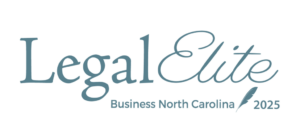North Carolina law imposes a detailed list of requirements on employment-related drug testing. But the courts have long held that employers who fire employees on the basis of false positive drug tests are not liable for the harm inflicted on these innocent employees. However, on Wednesday, the South Carolina Supreme Court held that drug testing laboratories owe a duty of reasonable care to the employees they are testing for drugs. Shaw v. Psychemedics Corp., No. 2017-002538 (S.C. Mar. 20, 2019). This decision opens a new avenue for wronged employees to recover directly from the labs who got them fired.
The South Carolina Supreme Court recognized that these labs are (or should be) keenly aware of the terrible harm they cause employees by reporting false positive test results and that these labs need the incentive provided by this liability to take precautions aimed at eliminating false positives. The Court based its ruling on pre-existing South Carolina law that a wrongdoer is liable for harm to a third party arising out of his contract with another party, despite the absence of any contract between the wrongdoer and his victim. Id. (citing Barker v. Sauls, 289 S.C. 121, 122, 345 S.E.2d 244, 244 (1986)).
North Carolina law mirrors these principles. “It is well settled law in North Carolina that privity of contract is not required in order to recover against a person who negligently performs services for another and thus injures a third party.” Finley Forest Condo. Ass’n v. Perry, 163 N.C. App. 735, 739, 594 S.E.2d 227, 231 (2004) (quoting Ingle v. Allen, 71 N.C.App. 20, 26, 321 S.E.2d 588, 594 (1984)). North Carolina courts impose a legal duty on a party to act reasonably toward another, and they evaluate what is “reasonable” with six factors:
- the extent to which the transaction was intended to affect the other person
- the foreseeability of harm to him
- the degree of certainty that he suffered injury
- the closeness of the connection between the defendant’s conduct and the injury
- the moral blame attached to such conduct; and (6) the policy of preventing future harm.
Finley Forest Condo. Ass’n, 163 N.C. App. at 740 (quoting Ingle v. Allen, 71 N.C. App. 20, 27, 321 S.E. 2d 588, 594 (1984), overruled on other grounds by Dep’t of Transp. v. Rowe, 351 N.C. 172, 521 S.E.2d 707 (1999).
All six of these factors should come out in favor of holding shoddy laboratories accountable for the harms and losses they cause employees wrongfully fired for false positive drug test results. Once pressed, North Carolina will likely follow its southern neighbor in allowing these types of claims.
It is highly likely that this decision will prompt drug testing laboratories to require indemnification agreements with employers. This may lead employers to require employees to sign waivers to get or keep jobs. But waivers don’t absolve wrongdoers of gross negligence. Establishing this kind of liability will improve drug testing results and help those harmed by careless laboratories. Given the prevalence of drug testing programs throughout the Carolinas, this decision will be a huge benefit to workers across the region.
Reach out for a consultation today.







